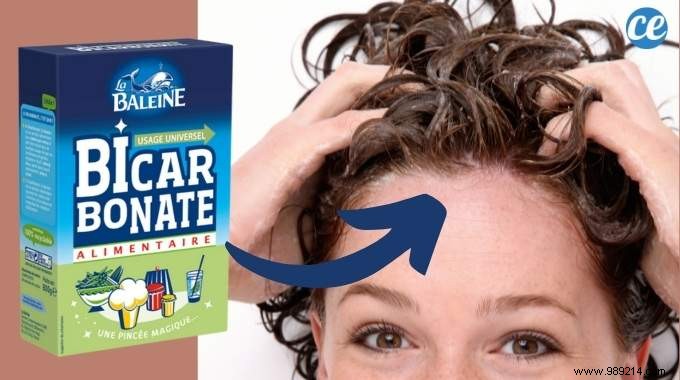
We all know the powers of baking soda for cleaning...
But can you use baking soda for your hair?
I reveal here all the uses of baking soda for her hair.
Because obviously, this miracle product is also suitable for our hair.
My hairdresser friend told me how she uses it.
And it must be said that it is downright effective. Not to mention the unbeatable price!
Here are 5 benefits of baking soda for hair that no one knows about . Watch:
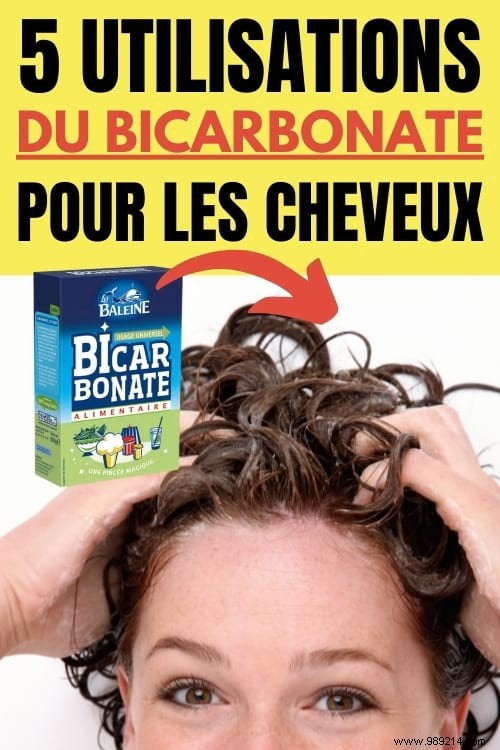
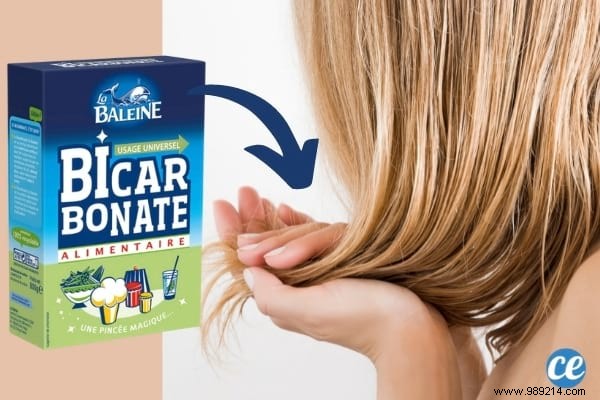
Do you have greasy hair or hair that tends to get greasy quickly?
Then baking soda will become your best ally.
But why ? Because bicarbonate washes and purifies the scalp without attacking it.
Because what we often forget is that the hair is greasy because of an excessively stripped scalp.
Especially because of commercial shampoos...
To defend itself, the scalp produces twice as much sebum.
As a result, the more you wash your hair, the oilier it is!
That's why baking soda is amazing.
Not only does it degrease the hair, but it also gently treats the scalp.
Moreover, it is not for nothing that more and more commercial shampoos contain bicarbonate.
And you know the best? It also makes dandruff disappear.
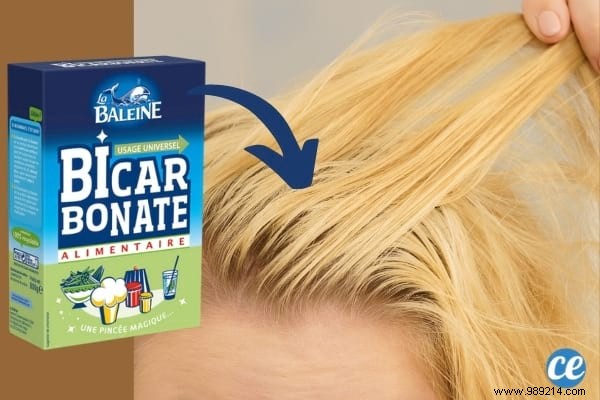
If the color of your hair dye is too dark or you don't like it too much, you will be able to tone it down naturally.
How? 'Or' What ? But thanks to the baking soda!
Make a paste of baking soda with a little water and spread it on the ends of your colored hair.
Massage the strands and leave on for ten minutes before rinsing off with lukewarm water.
Bicarbonate does not completely remove the color, nor does it bleach the hair.
On the other hand, it neutralizes and attenuates the chemical coloring pigments on the hair fibres .
With a few baths of baking soda, the color lightens visibly.
If your hair is green due to a reaction between the color and the chlorine, you can remove the green highlights with baking soda.
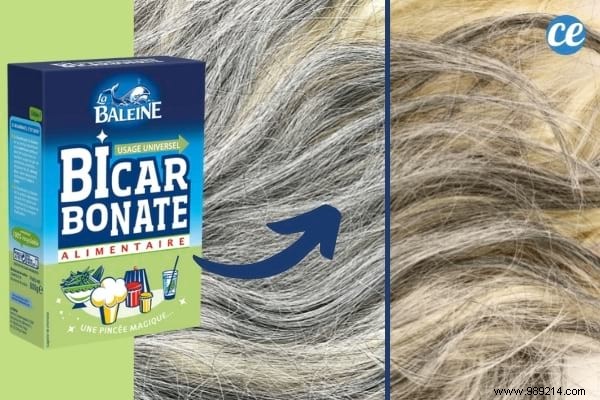
White or gray hair tends to turn yellow due to pollution, age or tobacco.
The tradition is to use a blue shampoo to neutralize the yellow color.
A blue shampoo? I think that like me, you tell yourself that it's not super natural...
And you're probably right.
To replace it, the best is to take out your baking soda.
It's natural and it costs almost nothing.
A bicarbonate bath helps to remove yellow pigments, residues of hair products or pollution that turn the hair yellow.
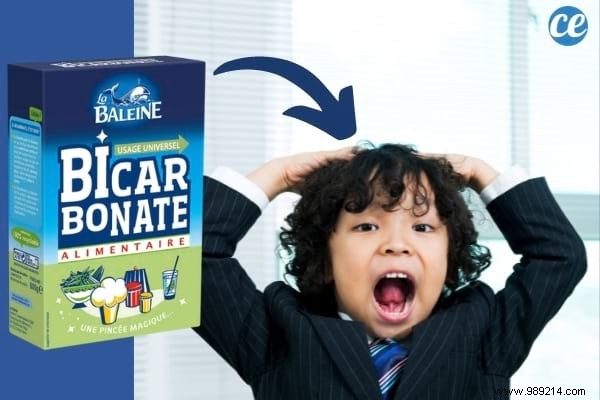
In case of itchy scalp, you have to act...yes, but gently!
Dandruff, dermatitis, eczema, psoriasis...there are many causes.
Unfortunately, commercial anti-itch products are often a far worse cure than the disease.
They provide instant relief, but strip the skin even more.
And what does the skin do to defend itself? It gets more irritated and produces sebum galore.
As a result, it itches ten times more, and the hair is greasy, dull and full of dandruff.
Stop everything!
And just do a root massage with baking soda.
It purifies and cleanses the skin of the skull .
After a few days, a simple rinse with bicarbonated water is sufficient.
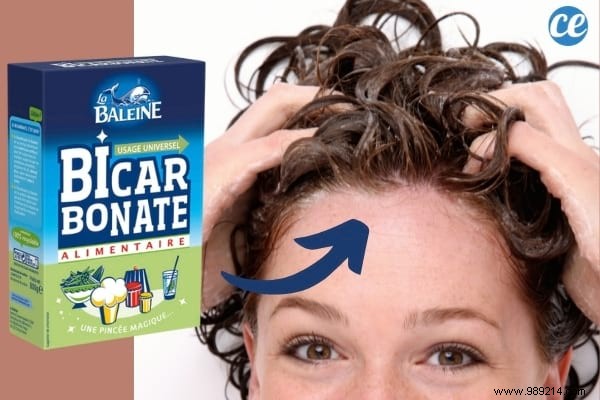
You may have heard of the "no poo" experience.
You know, those people who don't use shampoo anymore.
So don't panic! It's not about not washing your hair at all.
No!
It's more about washing them naturally.
A baking soda bath followed by a cider vinegar rinse and you're done.
You haven't seen your hair this shiny in years.
Discover my feedback in this article.
This method is 100% healthy and 0 waste.
No products with phosphates, questionable ingredients, endocrine disruptors...
Bicarbonate is great for the hair, it is not a danger.
However, it should not be abused .
Because too much bicarbonate will have the opposite effect in the long run.
- Baking soda can dry out the skin of the scalp and irritate it.
- Do not use it too often on colored or highlighted hair. As we have seen, it can cause the color to turn or fade, especially dark colors or henna.
- Beware of hair that is too thin, curly, frizzy or afro which can become brittle from repeated use. It's the same for hair with locks.
Which bicarbonate to choose for your hair?
Prefer a food-grade bicarbonate:its grain is finer than household bicarbonate.